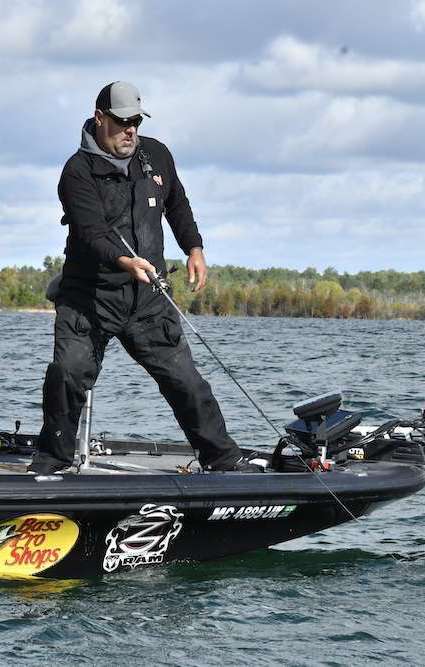
I grew up in the Midwest. It’s where I learned to fish 25 years ago. The Great Lakes are my old bass fishing stomping grounds where I first fished tournaments. Legendary Great Lake names like Pelee Island, Lorrain, Dunkirk, Chaumont Bay, Henderson Bay, Duck Island, Buffalo, St. Clair, Saginaw Bay, Thunder Bay – you name it I’ve fished it.
Sometimes I have to pinch myself when I think back to tournaments on the Great Lakes in that era. To catch 15 to 18 pounds in a one-day derby meant a legitimate shot at winning. If you broke 20 pounds, you certainly reached the pinnacle. And if you pushed past the 22-pound mark, you touched uncommon ground in uncharted territory.
Then in the early 1990s came news that no one wanted to hear. An invasive called the zebra mussel was destined to ruin the Great Lakes. Apparently these tiny insidious barnacles would soon cover the lake bottoms and bass would have nowhere to spawn.
Then, just when the news couldn’t get any worse, along came this alien pollywog-looking creature called a goby. If you thought the zebra mussels were bad news, the goby for sure was going to end smallmouth fishing in the Great Lakes as we knew it. Gobies were supposedly egg eaters, and the theory was they would eat all the bass eggs in the Great Lakes. Then after eating all of the fish eggs, they might even crawl out of the lakes and gobble up your children!
For years my smallmouth buddies and I dwelled on how these horrific invaders were going to take away our favorite sport; we mourned the certain loss of our fragile smallmouth fishery; we were devastated because the end was near.
I recently reflected on those darker times while watching my old compadre Chad Grigsby catch 5- and 6-pound smallmouth – one after another – en route to winning the FLW Tour event on Lake St. Clair. His scorecard for the week read something like a science fiction movie: 25-13, 24-4, 21-3, 26-4 for a total of 97 pounds, 8 ounces for four days of smallmouth fishing.
And that’s not just happening at St. Clair – this kind of smallmouth science fiction is going on in every lake where there are zebra mussels and gobies, from Montreal to Milwaukee. Even inland lakes that have been tainted by the evil twin invaders are cranking out surreal weights. Where 15 to 18 pound used to win tournaments, 15 to 18 pounds now won’t even land you in the top 50 percent of the field.
Lakes in this part of the country are now filled with more behemoth smallmouth than ever before, and the sheer numbers of fish are stunning. I know, I know fisherman are better…equipment is better, electronics are better. But I’m here to tell you, smallmouth don’t get that big eating equipment and electronics.
Please understand I’m not at all making light of invasives, exotics or people that study and monitor them. Certainly the Asian carp situation in the Mississippi River – and now reaching the Tennessee River – is nightmarish. And I understand these exotics impact other species and industries than just bass fishing.
But after watching these zebra mussels and gobies supposedly decimate our smallmouth fisheries for the last 30 years, I have to wonder what happened.
How could it be that, not one, but two invasives made a right? Is it possible that gobies and zebras created the absolute perfect storm for unprecedented smallmouth growth?
Straight up, I am not a biologist. Trust me, I couldn’t even sprout a weed in a greenhouse. But I do know this, smallmouth are sight feeders and they like to eat. Zebra mussels clear the water and gobies are the underwater version of pure pork loin protein. Since the incidental introduction of the zebra mussel and goby, smallmouth have essentially been given 20/20 vision at the all-you-can-eat buffet 24-7.
How else can you possibly explain weights like these? Twenty-five pounds has become the new 22 pounds. Twenty-eight pounds is now being flirted with regularly. Where are we headed? Thirty-pound limits for five smallmouth?
Folks, the St. Lawrence River Elite Series is coming up in a few weeks. As you watch that event unfold on Bassmaster LIVE, I want you to keep in mind that 25 years ago it would take 14 to 16 pounds per day to win a tournament there – watch where 16 pounds a day will put you these days. Watch what kind of smallmouth science fiction comes out of that place in August and tell me how else that could have happened?

